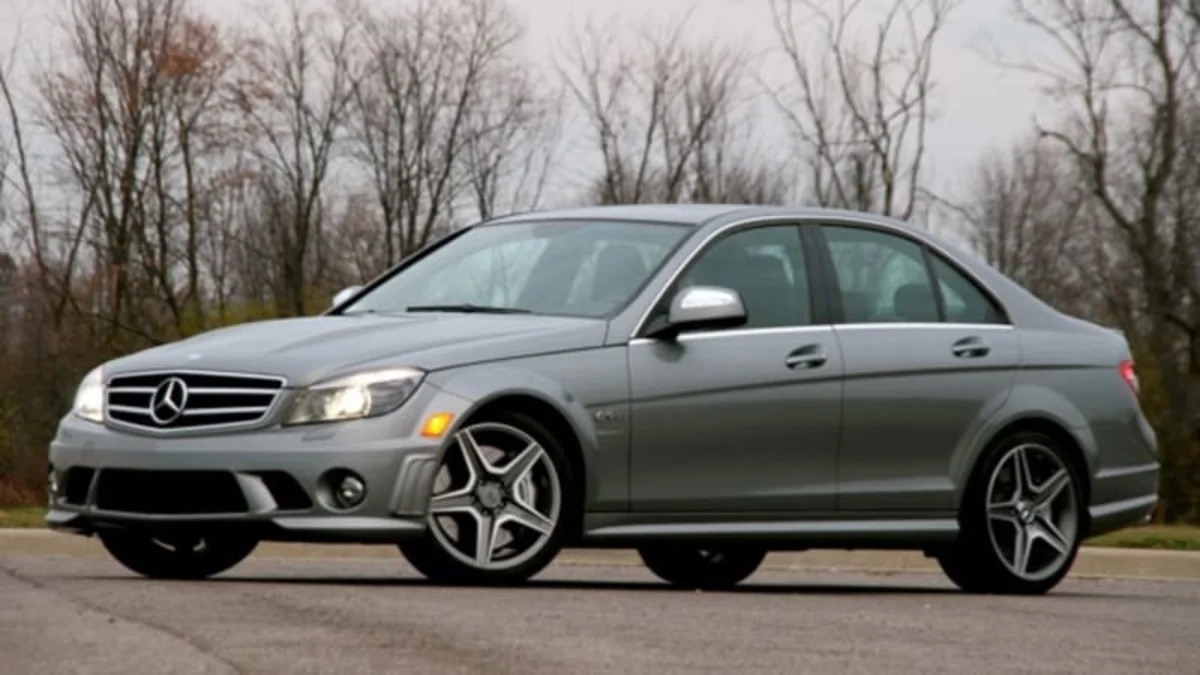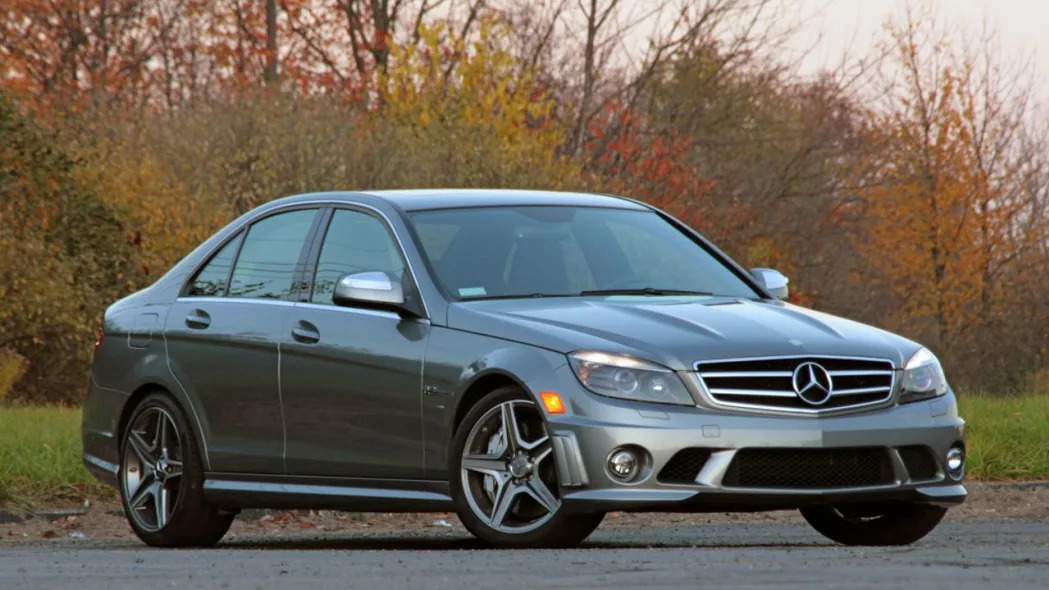Mercedes-Benz C63 AMG – Click above for high-res image gallery
The diminishing value of the U.S. dollar, most notably against the Euro and Yen, is causing plenty of grief for foreign automakers. While the US market has been in the tank for the past two years, it still remains a major market for companies like Audi, BMW and Mercedes-Benz. All three brands have been looking at ways to relieve some of the exchange rate pressure and Mercedes has decided that more "dollar zone" production will be part of the solution.
When the next generation C-Class rolls out in 2014, German production will be consolidated at Daimler's Bremen factory while units for the North American market will be built in the U.S. There's been no announcement about where production will take place, but an expansion of the SUV factory in Alabama is one possibility. On a related side note, part of the reason the Premium German brands have recently avoided selling four-cylinder versions of their entry-level models in the States has been the exchange rates and the associated lack of profitability. With new CAFE rules coming, it's likely that we'll be seeing more moves like this in the next several years.
[Source: Daimler]
Photos Copyright ©2008 Sam Abuelsamid / Weblogs, Inc.
press release
Decision on production of next-generation C-Class will improve competitiveness
-
Production of the C-Class as of 2014 in Bremen and the USA will secure growth opportunities and increase profitability
-
Attractive job possibilities for the employees affected at the Sindelfingen plant
-
Next generation of E- and S-Class to remain in Sindelfingen
-
Management and Labor Council share clear goal of further efficiency improvements
-
Resulting possibility to do without layoffs for operating reasons in Sindelfingen until 2020
The Board of Management and the General Labor Council of Daimler AG have agreed on the details of a personnel concept for the Sindelfingen plant in connection with the reorganization of the worldwide Mercedes-Benz production network. As of 2014, production of the C-Class will be concentrated at the Bremen plant with additional production in the United States for the local market. This will allow the Daimler Group to increase its competitiveness and to profit optimally from growth opportunities.
Due to attractive job possibilities for the employees affected in Sindelfingen and the decision to produce the next generation of the E-Class and the S-Class in Sindelfingen, it will be possible to do without layoffs for operating reasons at the Sindelfingen plant until December 31, 2019. At the same time, the Board of Management and the Labor Council affirm their commitment to continuously improving the plant's competitiveness and efficiency.
Dr. Dieter Zetsche, Chairman of the Board of Management of Daimler AG and Head of Mercedes-Benz Cars: "With the decision on our new plant for compact cars in Hungary, the reorganization of C-Class production as of 2014, and the production commitment for the E-Class and the S-Class, we have set the course for the future of our key models. This long-term strategic planning will give us additional growth opportunities and will make a significant contribution towards improving our competitiveness." Zetsche added: "This is the best way to protect jobs in Germany over the long term."
As part of the "Sifi 2020" personnel concept, the Board of Management and the Labor Council have also specified the details of alternative job opportunities for the employees affected by the discontinuation of C-Class production in 2014. As previously announced, the assembly of the SL premium roadster will be transferred from Bremen to Sindelfingen. This will already offset a large part of the job reduction.
Approximately 2,000 attractive new jobs
As the result of various additional actions, approximately 2,000 attractive new jobs will be defined, reflecting the employees' differing qualifications. Among other measures to be taken, Daimler will increase the depth of production in Sindelfingen, bring new technologies to the plant, and create jobs in research and development.
The actions decided upon also include additional assembly work with the integration of hybrid drives into vehicles and the construction of test vehicles, as well as an increased number of employees in the tooling shop for the production of machine tools. With regard to new technologies for example, Daimler will concentrate its activities in the area of lightweight technology at the Sindelfingen plant.
In order to ensure that the plant steadily improves its efficiency and makes the adjustments required to remain competitive also during the period of the agreement, Daimler will continue to make use of natural staff fluctuation and also of voluntary instruments such as early retirement and preretirement part-time work.



Sign in to post
Please sign in to leave a comment.
Continue